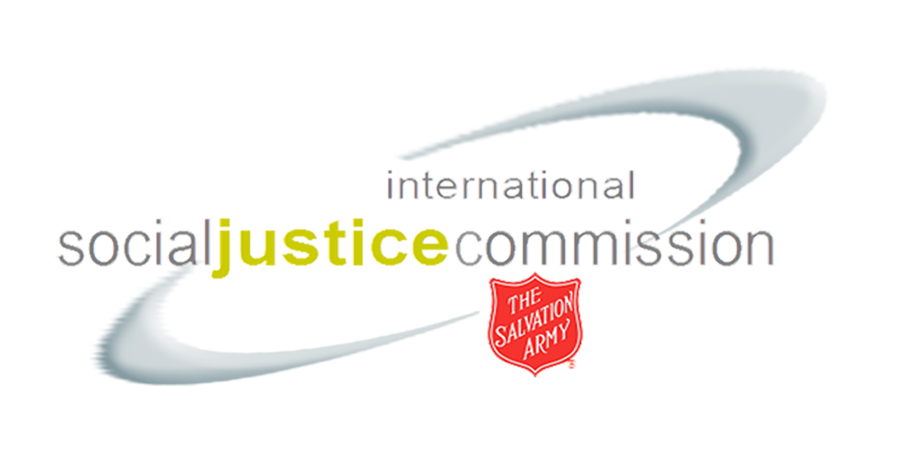 |
Welcome to the April 2016 edition of #UpForJustice – a monthly news and prayer letter from the International Social Justice
Commission (ISJC) based in New York City, USA.
We continue using the new Sustainable Development Goals (SDGs) as a framework for prayer and reflection. There are 17
goals, which all 193 United Nations (UN) member states endorsed at the UN General Assembly in September 2015. The SDGs
will shape the development agendas in all countries until 2030. Read more about the SDGs by visiting
www.salvationarmy.org/isjc/isjcun.
This month, Lieut-Colonel Dean Pallant, Director of the ISJC, reflects on the seventh SDG – ‘Ensure access to affordable,
reliable, sustainable and modern energy for all.’
|
Prayer Focus:
Affordable and
Clean Energy
|
 |
When did you last experience a loss of electricity supply? Most readers in Europe and North America will probably need a few
moments to think – it is a rare occurrence. There was a major loss of power in London and the North East of the USA in 2003.
It was such a surprise that people were completely unprepared and it dominated the news for days. Developed economies are
so dependent on electricity that we cannot function without it – trains stop, there is no lighting, heating or cooling for offices
and houses, electronic gadgets run out of battery power, and how can we cook food if the microwave oven stops working?
Western 21st-century society requires huge amounts of power to keep going.

Midtown Manhattan, New York City – where the ISJC office if located – uses more energy than the
whole of Kenya, and New York state uses more energy than all of sub-Saharan Africa according
to Columbia University (source)
However, if you live in Asia or Africa and have not had a power cut in the previous few months you will be fortunate. When
serving with my wife, Eirwen, at Chikankata Hospital in rural Zambia in the 1990s we often had no power – sometimes for 48
hours at a time. It is a major problem running a hospital with no power and no water – electricity was needed to pump
water from the dam. Most of these power cuts were due to poor maintenance, lightning strikes or thieves stealing copper
cables. The situation has not improved in recent years.
My parents live in Cape Town, South Africa, a very beautiful part of the world, but they have had to learn how to live with
regular power cuts. This is not usually due to poor maintenance or theft, but because there is a lack of power on the
national grid. There is not enough electricity to meet demand, so the power is switched off in areas on a rotation basis.
This is called ‘load shedding’ and often happens at the most inconvenient time – between 6pm and 8pm at night – when
many people need power to cook or heat their home.
Demand for power around the world is increasing rapidly. I have been travelling to Asia regularly during the past eight years
and am continually struck by the number of people – many in their 20s and 30s – who are earning reasonable salaries and
can now afford to have TVs, refrigerators, phones, computers and sometimes even air conditioning units. No one should
deny people the opportunity to acquire basic technology that western societies take for granted. However, generating
enough power to meet these reasonable demands is a major challenge. Many countries have committed to reduce their
reliance on fossil fuels (oil, coal, natural gas) due to environmental concerns. However, these fuels accounted for 87 per
cent of global primary energy consumption in 2012. It is predicted by 2040 liquid fuels, natural gas, and coal will still
account for more than 75 per cent of total world energy consumption.[1] Replacing fossil fuels with nuclear energy raises
many safety concerns.
We can hope that scientists will discover ways to harness energy from the sun, wind and water – so called ‘green energy’
sources – but in reality it is likely to be a long time before cheap, sustainable energy sources can meet the world’s demand
for power.
This is a complex problem. There are no simple solutions, but that does not mean we can avoid the problem, close our eyes
and hope it goes away.
|
|
|
|
|


Biblical reflection
Most of the energy sources we used today had not been discovered in Bible times. There are no Scripture verses instructing us
on whether we should build or close nuclear power stations, for example. However, the Bible does contain some principles
which help us decide what to do. The International Positional Statement on Caring for the Environment highlights three
important principles[1]:
- God is the creator, governor and preserver of all things. The Earth belongs to the Lord and everything in it (Psalm
24:1, Exodus 19:5). As people made in the image of God (Genesis 1:27) we have been entrusted with the care of the
Earth’s resources (Genesis 2:15). God invites us to share responsibility for the care of Creation (Genesis 1:28-
31; 2:15) and participate in the work of healing the world (Romans 8:19-22).
- The relationship of God to Creation is one of loving care and concern. Humanity’s stewardship of the earth is a
reflection of that care, as human beings are made in the image of God. The world was made to praise God and reveal
his glory (Psalm 19:1-6); our stewardship of it furthers that end.
- The degradation of the earth is, in part, the result of human activity (Isaiah 24:5-6) and it is therefore our responsibility
to work for its healing. The biblical command to humanity to ‘subdue’ and ‘rule’ should be interpreted as a requirement
to be good stewards rather than understood as justifying abuse of the Earth’s resources (Genesis 1:28). The disproportionate
effect that climate change and environmental degradation has on the poorest parts of the world creates additional
responsibilities to defend the cause of those who are vulnerable by restoring a sense of justice to the global community
(Micah 6:8).
|
 |
 |
ISJC News
We are sorry to say farewell to Captain Kathy Crombie, Senior Research Analyst, at the end of March. Kathy has been appointed
to head up The Salvation Army’s long-term response to the devastating earthquakes that struck Nepal last year. Kathy is one of
the few Salvation Army officers who speaks Nepali, having worked in the country before becoming an officer. Please remember
Kathy and the team in Nepal in your prayers. The ISJC will miss her, but we understand that the needs of Nepal are a priority.
Please continue to pray for the visa challenges faced by The Salvation Army. We are an international movement. We are a
stronger Army when people serve outside their home country. However, we live in a world where foreigners are viewed with
suspicion and visas are hard to obtain. The ISJC intern programme has been badly impacted by this in recent months. Please
pray for a breakthrough in this area.
Please pray for Lieut-Colonels Dean and Eirwen Pallant’s teaching ministry at the Officer Training College in Chicago, USA
Central Territory (10-11 April) and in Jeløy and at Oslo Temple Corps, Norway (18-24 April).
Social Media:  

|
 |


























